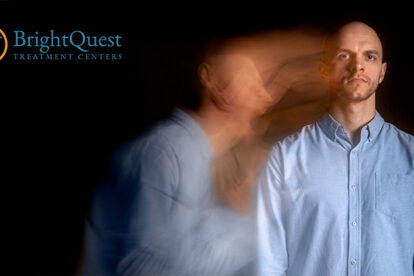When Your Dependent Adult Child with Severe Mental Illness Lacks Daily Living Skills: The Path Toward Independence

An adult with severe mental illness may not be able to function well enough with daily tasks and other life skills in order to be completely independent. Parents of these adult patients can help their children by pushing for treatment that includes a focus on life skills, social skills, and independence. It takes time, but along with standard treatment for conditions like schizophrenia and bipolar disorder, learning life skills can lead to greater independence.
Living with a serious and complex mental illness, like schizophrenia, schizoaffective disorder, bipolar disorder, or personality disorders, presents many challenges.
Having an adult child with one or more of these conditions, you may need to provide support, because living independently is one of the major challenges. These mental illnesses make it very difficult to focus on and learn how to make the kinds of daily decisions and to engage in the basic skills the rest of us take for granted.
But with the right treatment plan and with time and dedication, your child can learn more independent living skills and can work toward living with less or no support.
The Importance of Life Skills and Independence
There are many ways in which severe mental illnesses, like schizophrenia or bipolar disorder, can impact your child’s life. But one of the biggest is making it challenging or impossible to live independently. The complications of living with mental illnesses, especially untreated, range from difficulty with relationships to poverty and homelessness to financial problems and being unable to work.
You want your adult child to be able to enjoy what everyone else does—to make their own choices, to be able to work, and to thrive. Full independence may or may not ever be possible, but improvements can be made.
There is some evidence from studies of treating patients with severe mental illness that life skills training can improve overall functioning. Social skills training can also improve function and rates of symptom relapse. If your child is given the chance and the tools, they can learn to live more independently and to enjoy greater self-confidence and better quality of life.
An Involved Initial Assessment Informs Treatment Choices
When your adult child arrives at any treatment facility, you should expect an extensive evaluation and assessment. For someone with complicated and severe mental illness, planning treatment is not something to be taken lightly or done quickly. An intake assessment that takes hours or even a couple of days will help the multi-disciplinary team diagnose all existing conditions.
The assessment should go beyond just diagnosing mental illness, though. It should also be used to determine your child’s specific needs, skills, deficits and limitations, and current independence level. This will help inform treatment with therapy and medical care but also supplemental services and skill building. For instance, maybe your child knows how to cook and loves it but really struggles to plan grocery shopping and spending.
These details are important to understand, so that your child will be able to shore up weak areas and build confidence in those in which they already excel. Every patient coming into treatment is different down to the last detail, and treatment teams need to hone in on those unique differences.
A Focus on Independence in Treatment
Treatment for a complex mental illness has to involve standard therapies like medical care, behavioral therapies, trauma-focused therapies, and others. But for people like your child, whose symptoms are severe enough to impair the ability to function independently, there also needs to be a focus on working toward independence.
This means placing a strong focus on building individual and practical skills. The right treatment facility will work with your adult child to develop those skills by providing the tools, through instruction, and by building self-confidence and self-efficacy. Some of the kinds of independent living skills your child can learn, practice, and develop in treatment include:
- Personal finances, budgets, paying bills, and making money decisions
- Activities of daily living such as cooking, cleaning, and hygiene
- Driving, using transportation and running errands, shopping
- Managing physical health and getting medical care
- Computer literacy
- Finding and using community resources
- Setting and achieving goals
- Job skills, searching for a job, interviewing
- Finding and enrolling in vocational training or academic programs
- Social skills, engaging with others, and knowing when and how to ask for help
Begin Your Recovery Journey Today.
619-466-0547Learning and Growing in the Therapeutic Community
Another aspect of treatment that will be important for your child learning to live more independently is living in a social community. Look for a treatment program that is modeled on a therapeutic community. This model for treatment has long been used for patients with substance use disorders, but it can also be an important part of mental health care.
The purpose of treatment in this model is to provide social support, to engage patients in supporting each other and learning from each other, and to create a family and community rather than a group of individual patients.
In terms of learning life skills and independence, a therapeutic community model can be particularly useful. It is a built-in community of support. Learning life skills should not happen in a vacuum. They have to be practiced, and doing so in a safe community is beneficial. You can also be expected to get involved, as community-based treatment programs use families to help support patients and develop their skills.
These therapeutic communities are based on a philosophy of beginning with skills that the patient already has and scaffolding from there. Building up from where your child is now helps instill confidence and prevents the learning of new skills from becoming overwhelming or seeming impossible.
Learning Independence Takes Time
Your child can be more independent, but be aware that it will take time and patience. A residential treatment program for severe mental illnesses that builds life skills may be as long as 12 months. This is a slow learning process with one set of skills building on the others in parallel with therapy and other types of treatment. Be prepared to help your adult child commit to real, long-term treatment with the goal of making significant gains in independent living at the end of this journey.
If you’re concerned about a loved one and believe they may need residential care, we can help. BrightQuest offers long-term treatment for people struggling with complex mental health illnesses and co-occurring disorders. Contact us to learn more about our renowned program and how we can help you or your loved one start the journey toward recovery.






